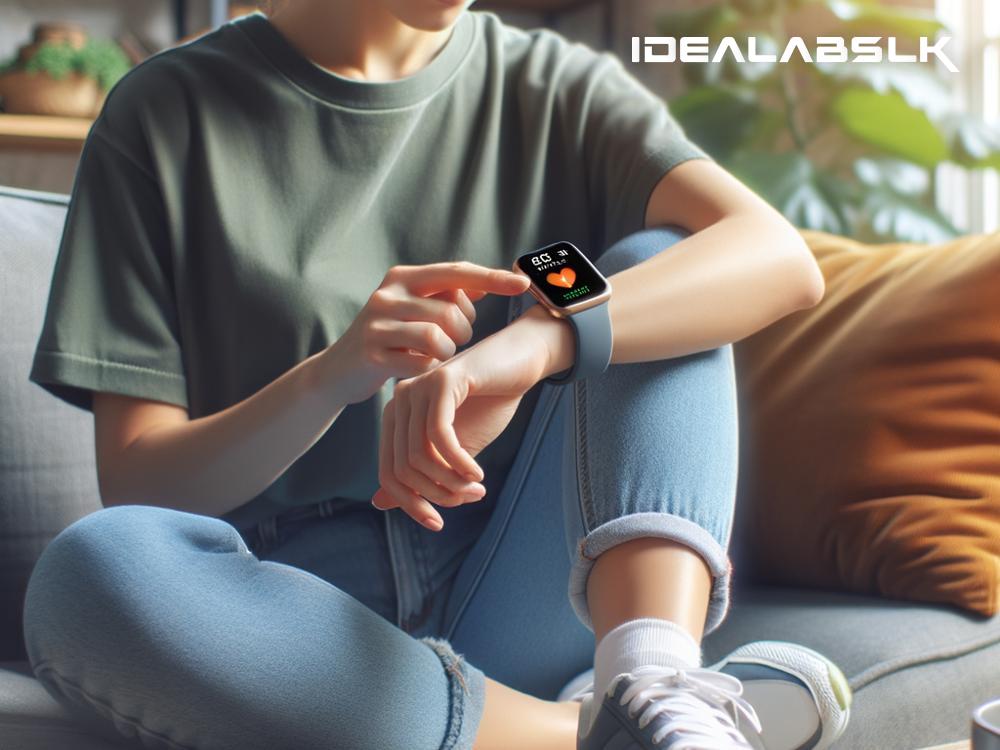Title: The Amazing Way AI-Powered Wearables Are Transforming Lives of Those With Chronic Illnesses
In recent years, we've witnessed an incredible surge in the use of artificial intelligence (AI) across various fields, from self-driving cars to voice assistants that can practically run our homes. But one area where AI is making a particularly heartwarming impact is in healthcare, specifically in helping individuals with chronic illnesses manage their conditions better. AI-powered wearables, devices you can wear like a watch or a bracelet, are at the forefront of this revolutionary change. Let's dive into how these tiny tech marvels are making big differences in the lives of those with chronic conditions.
A Closer Look at AI-Powered Wearables
Imagine wearing a watch that does more than tell time or count your steps. What if it could monitor your heart rate, predict a potential health flare-up, or even remind you to take your medication? That's exactly what AI-powered wearables are designed to do. These devices use artificial intelligence to analyze data collected from the wearer's body and provide insights or alerts related to their health.
The Magic Behind the Scene
So, how do these devices work their magic? It all starts with sensors that collect data -- think heart rate, blood pressure, glucose levels, and even sweat composition. This data is then fed into algorithms powered by AI, which are capable of recognizing patterns or anomalies indicative of a potential health issue or a worsening condition. The device can then alert the wearer with recommendations, such as taking medication, scheduling a doctor's visit, or simply taking a moment to relax and de-stress.
A Day in the Life With an AI-Powered Wearable
Let's take a hypothetical person, Jamie, who lives with diabetes. Jamie wears a smart glucose monitor that tracks blood sugar levels in real time. One afternoon, the device notices Jamie's levels are starting to dip lower than usual. Before Jamie even notices any symptoms, the wearable suggests consuming a snack with a specific amount of carbohydrates to help prevent a hypoglycemic episode. This immediate feedback can be a game-changer, especially for managing conditions that require constant vigilance.
Beyond Monitoring: The Wearables Ecosystem
The capabilities of these AI-powered wearables extend beyond just monitoring. Many of these devices connect to apps or online platforms where the wearer can track their health trends over time. Some even facilitate sharing data with healthcare providers, ensuring a seamless flow of information. This connectivity fosters a proactive approach to health management, empowering individuals and their healthcare teams to make informed decisions together.
The Impact on Chronic Illness Management
For people living with chronic illnesses, these wearables offer more than just convenience; they provide a layer of security and control over their health. Conditions like heart disease, diabetes, and asthma require daily management and vigilance. AI-powered wearables offer real-time insights that can preempt emergencies, promote stable health, and in some cases, even save lives.
Moreover, the psychological benefits shouldn’t be understated. The sense of autonomy and empowerment that comes from having more control over one’s health can significantly improve an individual's quality of life and mental well-being. It transforms the relentless pursuit of symptom management into a more manageable, even tech-savvy experience.
The Road Ahead
As AI technology continues to evolve, we can only expect these wearables to become more sophisticated, with finer accuracy and even more personalized health recommendations. The potential for AI-powered wearables in chronic illness management is vast, promising a future where technology and healthcare merge to support healthier, happier lives.
However, it's crucial to address challenges such as data privacy and ensuring these innovations are accessible to everyone, regardless of socioeconomic status. As we navigate these hurdles, the focus must remain on leveraging AI to enhance healthcare inclusively and empathetically.
Wrapping Up
AI-powered wearables represent a beacon of hope for millions living with chronic illnesses, offering them a new tool to manage their conditions with greater ease and confidence. By harnessing the power of artificial intelligence, we're not just revolutionizing healthcare; we're offering individuals a chance to reclaim their independence and lead fuller lives. As technology advances, it's exciting to imagine how much more we can achieve in making healthcare more personalized, accessible, and effective for all.

